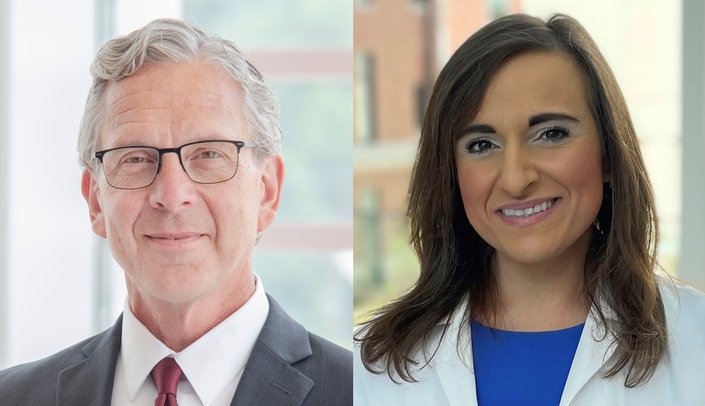In 2016, Nebraska established the Nebraska Coalition to Prevent Opioid Abuse to address misuse of prescription opioids and curb the incidence of illicit opioid use in the state.
UNMC’s Ken Zoucha, MD, and Alena Balasanova, MD, are part of the coalition’s opioid treatment subcommittee. This year, one of the subcommittee's goals is to educate health professionals and the public about substance use disorder (SUD) stigma. Stigmas create societal barriers that prevent people from getting the help they need.
"Like the general public, physicians also experience stigma about those with substance use disorders," said Dr. Zoucha, director of the addiction medicine division in the UNMC Department of Psychiatry and chair of the opioid treatment subcommittee. "The disorders are chronic brain diseases that require treatment. The more we can get that across, the less stigma there will be and the more patients who will get help."
Overcoming stigmas takes time and effort, he said.
"These are not bad people who need to be made good. They have a disease that needs to be treated. Stigmas promote ideas that individuals who misuse drugs or alcohol are thought of as weak if they can’t stop; irresponsible, foolish and choos(ing) to use drugs or alcohol. Those are stigmatizing ideas.
"A lot of good people believe passionately about this issue and want to help folks understand addiction is a disease process, and it’s important to destigmatize through education."
Dr. Balasanova, director of addiction psychiatry education, was involved in passing national policy for the American Medical Association to address substance use disorder stigma by changing the language of addiction.
"As clinicians, the words we choose to use when we describe an individual with an SUD directly correlate to unconscious bias that results in providing worse quality care, which in turn leads to disparate outcomes for patients," Dr. Balasanova said.
"The research is clear, and it shows that clinicians are more likely to agree with the need for punishment or withholding care from a patient who is labeled as an ‘abuser’ of drugs or having substance ‘abuse.’ This is an equity issue, and we need to ensure we are providing equitable care to patients with SUDs.
"It’s incredible how such a small change — switching out the term ‘abuse’ for ‘use’ — can help us achieve that," she said.
